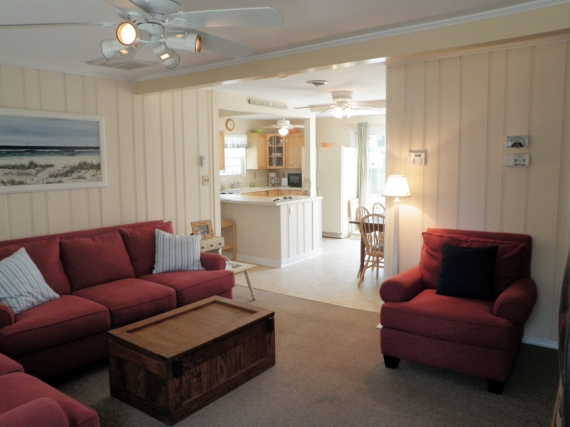
Achieving a dream home in Ireland is a journey that blends aspiration with meticulous planning. Across the verdant landscapes, from the rugged Atlantic coastline to the rolling hills of the countryside, the opportunity to construct a personalised sanctuary is an aspiration for many. With the right approach, this vision is entirely attainable. It starts with comprehensive research, an understanding of the local planning laws, and a clear outline of one's budget. By balancing desires with pragmatic considerations, one lays the groundwork for a successful home-building project.
The quest for constructing a dream home in Ireland also involves being well-informed about the building methods and materials suitable for the Irish climate and geography. Embracing sustainable practices and energy-efficient designs not only aligns with Ireland's environmental guidelines but also ensures that the dream home is both comfortable and cost-effective for the long term. With a methodical and informed approach, the dream of a custom-built home in Ireland is within reach.
Planning Your Dream Home
When setting out to create your dream home in Ireland, crucial steps include the creation of a unique house design, securing planning permission, and managing a precise budget. These core elements lay the groundwork for turning your vision into reality.
Designing Your Home
One first envisions their home and then engages with a professional designer or an architect to refine this vision. The expertise of an architect is invaluable in designing a home that is not only aesthetically pleasing but also functional and compliant with local regulations. They work closely with the homeowner, interpreting their desires and needs into a tangible plan that balances creativity with practicality.
Obtaining Planning Permission
Acquiring planning permission is a mandatory step in Ireland for anyone who wishes to construct a new building or make significant changes to existing structures. The process involves submitting detailed house design plans to local authorities for approval. This ensures that the construction complies with zoning laws, building codes, and that it meshes well with the community's development plan. It's imperative to factor in the time and potential adjustments required for this phase, as it can greatly affect the project's timeline.
Budgeting Effectively
A well-structured budget is the foundation of any successful home building project. It should account for all foreseeable expenses including:
• Architect fees
• Planning permission fees
• Construction costs
• Interior finishing
• Contingency funds
It's recommended to consult with professionals to receive accurate cost estimations for the completion of your home and to monitor expenses closely throughout the project. Budgeting effectively ensures that resources are allocated wisely, potentially saving one from overspending or having to cut corners later in the process.
Assembling Your Building Team
When embarking on the journey to build or renovate a home in Ireland, one's success hinges on assembling a skilled and cohesive building team. This team must have the ability to work collaboratively, ensuring all components of the home construction are expertly managed from start to finish.
Choosing the Right Builder
The builder is paramount to the construction process, transforming plans into reality. It is imperative to choose a builder with a strong reputation and the necessary experience in the type of home project one is undertaking. They should demonstrate clear communication, a professional manner, and a portfolio of past projects. For a quality guaranteed experience, one may consider a builder recognised for meeting the ISO 9001:2015 standard.
• Credentials: Check for proper licensing and insurance.
• Past Work: Request and review their portfolio.
• References: Speak to past clients about their experiences.
• Quotes: Obtain detailed and transparent quotations for comparison.
• Contract: Ensure a comprehensive contract is in place before work commences.
Hiring Architects and Designers
An architect or designer brings vision and expertise to the project, tailoring the design to one's specific needs and desires. It is essential to seek out a RIAI Registered Architect who can guide the process with professional insight and creativity. The chosen professional should be adept at navigating planning permissions and delivering a design that aligns with the home owner's objectives.
• Qualifications: Verify their registration with architectural bodies.
• Compatibility: Their design style should resonate with the home owner's vision.
• Portfolio: Evaluate their previous designs.
• Communication: They must be able to articulate and interpret ideas effectively.
Roles of Engineers and Contractors
Engineers and contractors are critical for the structural integrity and execution of the design. Their roles involve detailed oversight of the build's technical aspects, ensuring it meets all safety standards and building codes. The right contractor will efficiently manage the construction, overseeing subcontractors and maintaining the project timeline. Engineers should be employed to advise on structural soundness and the integration of home systems.
• Specialisations: Choose based on the structural and mechanical needs of the build.
• Track Record: They must have an impeccable record of safety and compliance.
• Coordination: They should demonstrate the ability to collaborate with architects and builders.
• Budgeting: Expect detailed cost assessments and adherence to financial plans.
By carefully selecting each professional based on these criteria, one paves the way for a well-managed project and the realisation of their dream home.
Construction Fundamentals
In constructing a dream home in Ireland, one must carefully consider the materials, methods, and systems integration for the build. This focus ensures the longevity, efficiency, and comfort of the home.
Selecting Building Materials
Materials form the cornerstone of any construction project. In Ireland, builders often prefer materials that are not only durable and robust but also suitable for the local climate. Popular choices include concrete for its longevity and insulation properties, and locally-sourced stone or brick for weather-resilience and aesthetic appeal. Timber is chosen for its sustainability and warmth but requires treatment against moisture. Importantly, the choice of materials will influence not just the look but also the thermal performance of the house.
Understanding Construction Methods
The building methods utilised must adhere to current Irish Building Regulations which prioritise safety and energy efficiency. Traditional construction often involves masonry walls and concrete foundations. However, there's an increasing use of modern methods such as timber framing or modular construction which can expedite the building process. The method selected can have a significant impact on cost, timeframes, and the environmental footprint of the build.
Integrating Systems for Comfort
Integrating electrical and water systems early on is essential to avoid future complications. A well-planned electrical system should provide sufficient and conveniently located outlets, incorporate renewable energy solutions like solar panels, and allow for future upgrades or expansions. Water systems need to be robust, with considerations for insulation to prevent freezing and efficient heating systems for supply. Proper integration of these systems is critical not only for comfort but also for ensuring the house functions seamlessly as a cohesive unit.
Ensuring Quality and Compliance
Achieving your dream home in Ireland requires careful attention to detail and adherence to national standards. This section outlines the necessary steps to ensure your home meets quality and compliance benchmarks.
Navigating Building Regulations
In Ireland, building regulations are designed to provide for the safety, health, accessibility, and sustainability of constructed environments. Homeowners must ensure that construction or renovations comply with the Building Control Regulations, which mandate standards across structural integrity, fire safety, and energy performance. Engaging with a qualified architect or surveyor is crucial to successfully navigate building regulations.
Implementing Quality Control
Quality control is integral to the construction process, safeguarding against defects and ensuring the longevity of the property. Developers and builders should implement a rigorous quality control plan that aligns with the Quality Housing for Sustainable Communities guidelines, encompassing site layouts, materials, and construction methods. Regular inspections by qualified professionals throughout construction are essential to maintain the highest standards.
Securing Adequate Insurance
Insurance plays a vital role in safeguarding your investment during and after the construction of your home. Builders should obtain construction insurance to protect against any onsite accidents or damage. Once the home is completed, homeowners are advised to secure home insurance that covers structural and contents insurance, based on a proper valuation of the property, ensuring peace of mind against future uncertainties. Consulting with a trusted insurance provider will help in obtaining the appropriate coverage for your needs.
Interior and Exterior Design
Designing the interior and exterior of your dream home in Ireland involves a harmonious blend of aesthetics and functionality, along with careful consideration of the natural landscape and architecture. Expert knowledge from designers is crucial in bringing this vision to life.
Aesthetical and Functional Interiors
Interiors should marry form with function, creating spaces that are both beautiful and practical. For the kitchen, often considered the heart of the home, a contemporary kitchen design can offer a refined use of materials and modern aesthetics. In living spaces, walls and windows play a key role; walls define the character through colour and texture, while windows shape the lighting and atmosphere of rooms. High-quality materials and finishes are recommended for longevity and visual appeal.
External Appearance and Landscaping
The home's exterior should reflect individual style and blend seamlessly with its surroundings. Landscaping is not just about planting; it's about creating a cohesive outdoor space that complements the architectural style of the home. Thoughtful placement of shrubbery and trees can enhance the property's privacy and aesthetic value. Additionally, the choice of external materials for walls, whether brick, stone, or render, will influence the home's energy efficiency and maintenance needs.
Advanced Home Features
When envisioning a modern dream home in Ireland, homeowners consider advanced features that enhance energy efficiency, incorporate smart technology, and prioritise sustainability.
Incorporating Energy Efficiency
Homes with excellent energy efficiency reduce utility costs and support a sustainable environment. A critical aspect of achieving this is through effective insulation which minimises heat loss. Homeowners are advised to undertake a home energy assessment to pinpoint areas for thermal optimisation.
Leveraging Modern Technology
Modern technology in home design goes beyond basic amenities. It encompasses advanced systems for managing the property's functionality with ease. From high-tech security systems to intuitive heating and cooling controls, technology ensures that comfort and convenience are at the forefront of home living.
Smart Systems and Renewable Energy
Smart homes integrate systems that learn from your habits and adapt to your lifestyle, promoting an energy-efficient and customised living experience. Renewable energy solutions, such as solar panels, work in tandem with smart systems to maximise energy production and savings. These technologies are not just about innovation; they significantly contribute to a home's sustainability credentials.
Project Management and Final Touches
When bringing a dream home in Ireland to life, effective project management bridges the gap between vision and reality, while final touches add personal flair. Guided by a meticulous project manager, each phase transitions smoothly into the next, ensuring that both renovation projects and extensions are executed with precision and are reflective of the homeowner's feedback and relationship with the crafting space.
Coordinating Project Phases
A project manager plays a pivotal role in orchestrating the sequence of construction activities. They ensure that timelines are adhered to and that resources are allocated efficiently. Communication is the bedrock of their duties, providing consistent updates and gathering feedback to refine the process. This continuous engagement builds a robust relationship between the homeowner and the construction team, fostering an environment where final touches truly capture the homeowner's tastes and desires.
• Initial Planning: Align project scope and set expectations.
• Phase Scheduling: Sequence tasks and manage timelines.
• Resource Coordination: Organise materials and labour.
• Constant Communication: Keep lines open for feedback and adjustments.
Handling Renovations and Extensions
Renovating an existing structure or adding an extension requires a distinct approach. A renovation project may involve intricate care, particularly when preserving the essence of a property. Extensions, while they offer more creative freedom, must seamlessly integrate with the existing architecture and intent of the home.
• Renovation Focus:
Preservation of character
Structural integrity
Aesthetics and functionality
• Extension Care:
Complementing design
Spatial harmony
Planning permission adherence
The final stage entails a keen eye for detail, ensuring that finishes are polished and that any feedback is translated into the home's final presentation. It's this level of tailored attention that distinguishes a house from a dream home.
Moving Into Your Dream Home
Moving into a dream home in Ireland, after all the planning and building, is an exciting yet daunting process. They must approach the move with an open mind and be prepared to tackle the tasks ahead. A checklist is crucial for keeping the move into their dream home organised and stress-free.
Before the Move:
Sort and declutter personal belongings to ensure only necessary items are moved to the new home.
Arrange a reputable house clearance service for a smooth transition of belongings from the old place to the new.
Request feedback from friends or family who recently moved to learn from their experiences.
On Moving Day:
Keep essential items like documents, chargers, and food in a clearly marked essentials box.
Confirm arrangements with the removal service to ensure timing and logistics are understood by all parties.
Upon Arrival:
Conduct an initial inspection of the property to identify any immediate concerns.
Begin unpacking by setting up critical areas such as bedrooms and the kitchen to quickly establish a sense of normalcy.
After the Move:
It is important to maintain an open mind and expect some teething problems as they settle into their new environment.
They should be open to making adjustments and improvements to the home as they start living in it and discovering its quirks.
Transiting into a dream home is an exciting milestone. By staying pragmatic and methodical, they can make the process as smooth as possible, transforming a house into a treasured home.

















